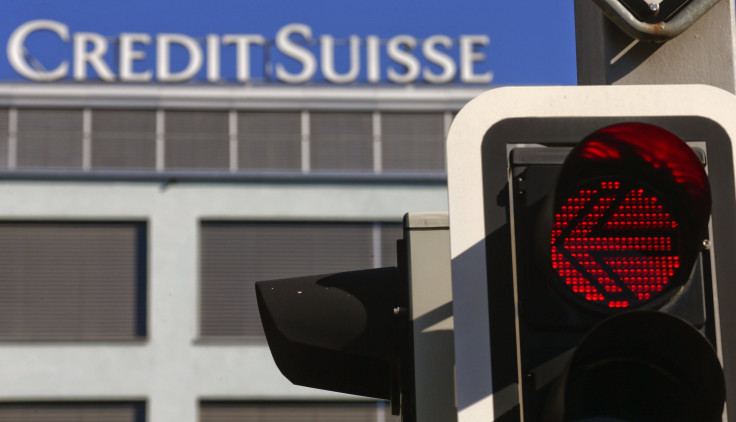Business As Usual For Credit Suisse After Tax Fraud Fine

The day after Credit Suisse AG (VTX:CSGN) made headlines by becoming the first major bank in decades to plead guilty to U.S. criminal charges and agreeing to pay a $2.62 billion fine, the Swiss bank’s shares rose Tuesday amid investor relief that the charges weren’t worse. The disconnect between the punishment and the performance raises questions about the effectiveness of such penalties and whether paying hefty fines is just the price of doing business on Wall Street.
“For a long time, regulators and prosecutors have been reluctant to require it (a guilty plea, but now the taboo has been taken off a guilty plea,” Morningstar analyst Erin Davis said. “They could now be an ongoing cost of doing business for banks,” she added.
Credit Suisse officially pled guilty to allowing U.S. clients to evade their taxes by hiding money in Swiss accounts for decades. American officials have been looking into the situation since 2009, and have found that the bank “operated an illegal cross-border banking business” for decades.
“Prosecutors want to look tough, they want to be tough, and make banks not want to do this kind of thing,” Davis said. “But I think their efforts to ensure Credit Suisse’s viability do underscore the basic point that banks may not be too big to jail, but they can still be too big to fail.”
In other words, officials and prosecutors worked together with banking regulators to ensure the guilty plea wouldn’t trigger a financial crisis.
“The guilty plea is really new territory for punishing banks,” Davis said.
Traditionally, the Security and Exchange Commission (SEC) rules prohibit institutions from doing business with known criminals, but in February the SEC granted the bank’s request for a waiver of certain rules prohibiting activities for convicted groups.
Credit Suisse CEO Brady Dougan said on Tuesday that the bank has “found no instances where clients cannot do business with us,” according to The New York Times.
Under terms of the settlement and after lengthy discussion with Swiss authorities, executives are not being fired and are not obligated to release information about customers to the United States.
“It is a mystery to me why the U.S. government didn’t require as part of the agreement that the bank cough up some of the names of the U.S. clients with secret Swiss bank accounts,” Sen. Carl Levin, D-Mich., said to Bloomberg.
The bank did predict a $1.8 billion hit to second-quarter profits. It’s a big number, but still manageable.
“It’s less than 10 percent of the bank’s equity,” Davis said, adding that “it's something they can absorb and move past. Nobody was really aiming to put Credit Suisse out of business."
Davis said the deal had been expected for weeks and was baked in to analysts' outlooks.
U.S. Attorney General Eric Holder said at a Washington press conference on Monday that the case shows that no bank is too big or too global to avoid prosecution.
“A company’s profitability or market share will never be used as a shield from prosecution or penalty. And this action should put that misguided notion definitely to rest,” he added, according to a Bloomberg report
The bank is now obligated to pay $1.8 billion to the U.S. Justice Department, $100 million to the Fed and $715 million to New York State regulators.
The most interesting part of this is the plea itself.
Credit Suisse is the second-largest bank in Switzerland, second only to UBS which also came under scrutiny from U.S. officials. In 2008, American authorities started looking into the Zurich-based bank for fostering tax evasion. A year later, UBS paid a $780 million fine and turned over information for more than 4,000 accounts, according to Reuters.
Now, all eyes will be on France’s BNP Paribas (BNP:EN), which is currently under scrutiny for alleged money laundering and violating U.S. sanctions against Cuba, Iran and Sudan. The bank is also expected to plead guilty and face fines of $3.5 billion along with a suspension of U.S.dollar transactions, according to the Financial Times.
© Copyright IBTimes 2024. All rights reserved.












